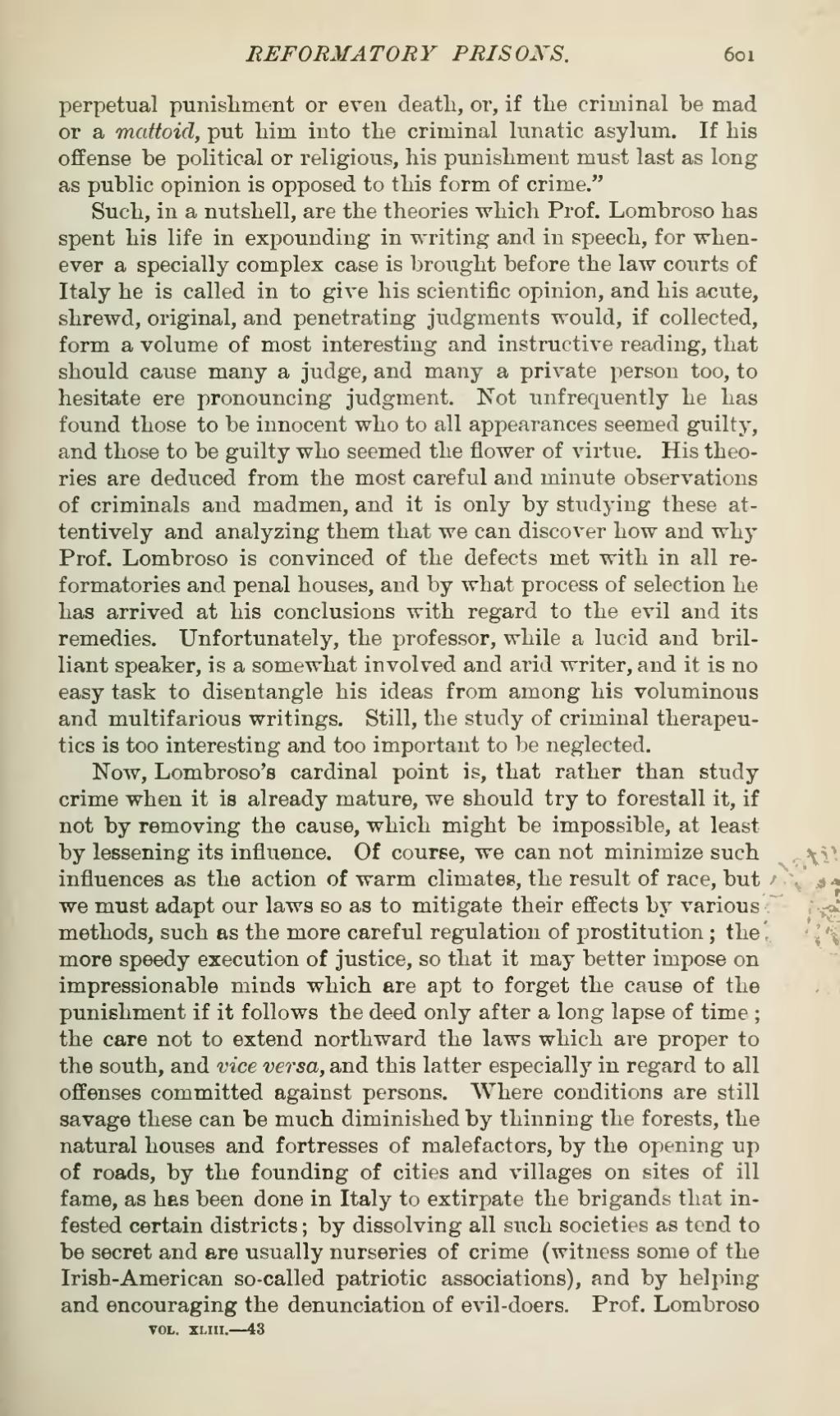perpetual punishment or even death, or, if the criminal be mad or a mattoid, put him into the criminal lunatic asylum. If his offense be political or religious, his punishment must last as long as public opinion is opposed to this form of crime."
Such, in a nutshell, are the theories which Prof. Lombroso has spent his life in expounding in writing and in speech, for whenever a specially complex case is brought before the law courts of Italy he is called in to give his scientific opinion, and his acute, shrewd, original, and penetrating judgments would, if collected, form a volume of most interesting and instructive reading, that should cause many a judge, and many a private person too, to hesitate ere pronouncing judgment. Not unfrequently he has found those to be innocent who to all appearances seemed guilty, and those to be guilty who seemed the flower of virtue. His theories are deduced from the most careful and minute observations of criminals and madmen, and it is only by studying these attentively and analyzing them that we can discover how and why Prof. Lombroso is convinced of the defects met with in all reformatories and penal houses, and by what process of selection he has arrived at his conclusions with regard to the evil and its remedies. Unfortunately, the professor, while a lucid and brilliant speaker, is a somewhat involved and arid writer, and it is no easy task to disentangle his ideas from among his voluminous and multifarious writings. Still, the study of criminal therapeutics is too interesting and too important to be neglected.
Now, Lombroso's cardinal point is, that rather than study crime when it is already mature, we should try to forestall it, if not by removing the cause, which might be impossible, at least by lessening its influence. Of course, we can not minimize such influences as the action of warm climates, the result of race, but we must adapt our laws so as to mitigate their effects by various methods, such as the more careful regulation of prostitution; the more speedy execution of justice, so that it may better impose on impressionable minds which are apt to forget the cause of the punishment if it follows the deed only after a long lapse of time; the care not to extend northward the laws which are proper to the south, and vice versa, and this latter especially in regard to all offenses committed against persons. Where conditions are still savage these can be much diminished by thinning the forests, the natural houses and fortresses of malefactors, by the opening up of roads, by the founding of cities and villages on sites of ill fame, as has been done in Italy to extirpate the brigands that infested certain districts; by dissolving all such societies as tend to be secret and are usually nurseries of crime (witness some of the Irish-American so-called patriotic associations), and by helping and encouraging the denunciation of evil-doers. Prof. Lombroso
